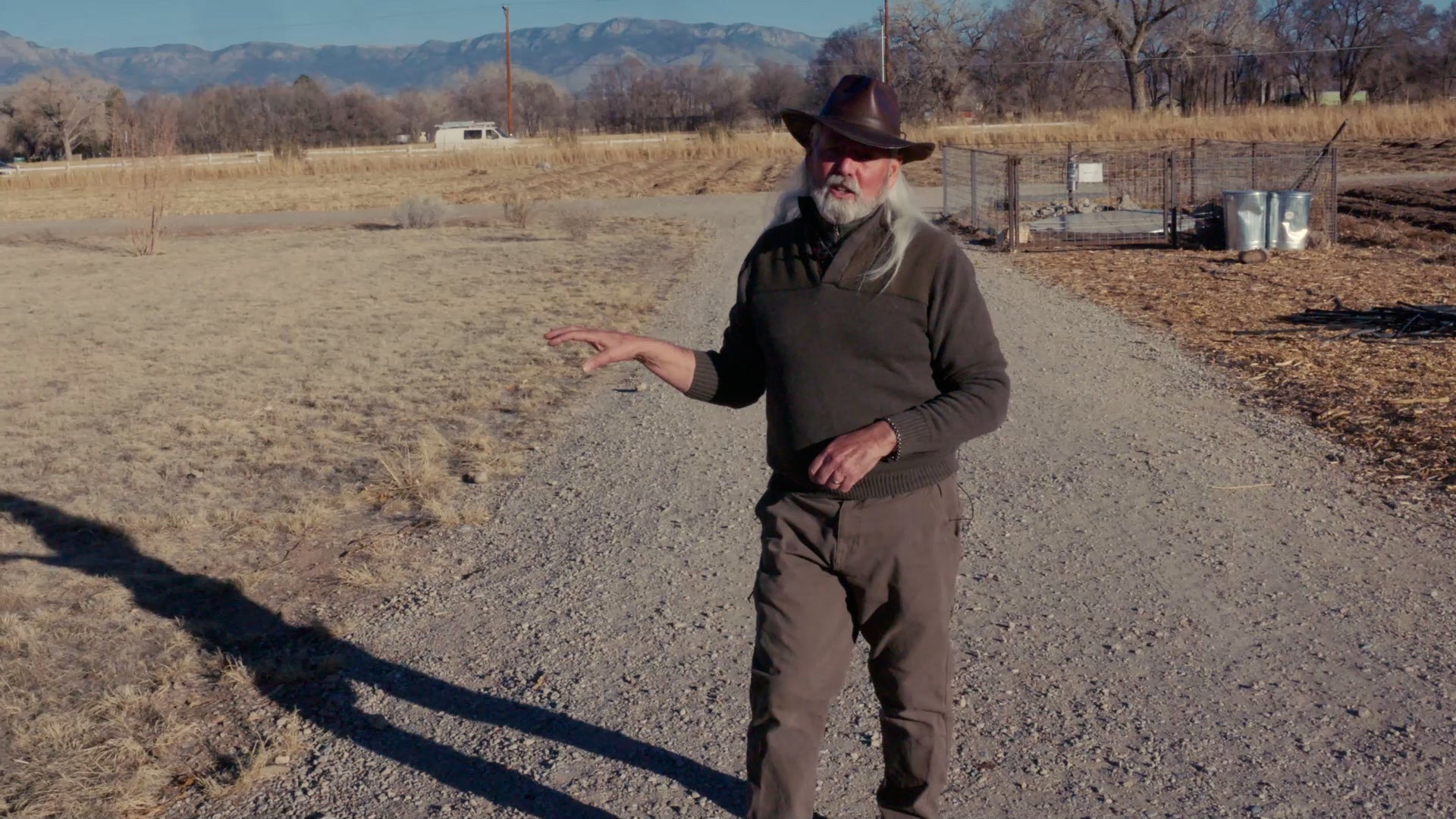How farming in the New Mexico desert is adapting to more arid conditions
The farm is using “regenerative” practises to build a soil that retains water better
Your support helps us to tell the story
From reproductive rights to climate change to Big Tech, The Independent is on the ground when the story is developing. Whether it's investigating the financials of Elon Musk's pro-Trump PAC or producing our latest documentary, 'The A Word', which shines a light on the American women fighting for reproductive rights, we know how important it is to parse out the facts from the messaging.
At such a critical moment in US history, we need reporters on the ground. Your donation allows us to keep sending journalists to speak to both sides of the story.
The Independent is trusted by Americans across the entire political spectrum. And unlike many other quality news outlets, we choose not to lock Americans out of our reporting and analysis with paywalls. We believe quality journalism should be available to everyone, paid for by those who can afford it.
Your support makes all the difference.The head of horticulture at an organic farm in the New Mexico desert says he is adapting farming methods as the region becomes more arid driven in part by climate change.
The land where Los Poblanos farm and historic inn is situated in the Rio Grande valley has been in use for hundreds of years and those that work it now are carrying on a farming tradition started by indingenous people, according to Wes Brittenham.
Many years ago, the farm was entirely watered by irrigation ditches but as water in the local waterways is no longer as reliable the team has modified its irrigation systems, relying on drip tubing to feed the crop, Mr Brittenham said.
The farm at Los Poblanos also uses sheep and alpaca to help propagate the crop, which include vegetables and garden herbs used in the kitchens at the inn’s restaurant and lavendar which is made into essential oils, he said. The sheep and alpaca chew up the surface of the soil, while their weight creates depressions allowing water to gather and seeds to take root, he explained.
“Last year, we knew that the irrigation ditches might run dry by June, so fields that we had typically relied on irrigation ditches for water, we ran drip tape and drip tubing just in case, and we did have to rely on that at certain points during the season,” he said. “Other fields we elected not to plant at all due to the uncertainty of water.”
New Mexico is a region that has seen an increase in aridity in recent years driven in part by climate change, and which is projected to continue, according to Friederike Otto, a senior lecturer in climate science at the Grantham Institute for Climate Change and the Environment at Imperial College London. Agricultural drought is also expected to increase with greater warming, she said.

To respond to changing conditions, the farm is using “regenerative” practises such keeping soil covered, keeping living roots in it and animals on it to build a soil that holds more water and has better retention after rainfall, snowfall, or thanks to the drip system, Mr Brittenham said.
“We’re really trying to specfically target the water to the crop,” he said.
If and when water becomes so precious the farm will leave parts of it land to exist solely on rainfall, he added.
“That will be part of the evolution of the landscape based on water availability,” he said. “Mother nature is in control, and my job is to be a steward of the land that I’m charged with caring for.”

Join our commenting forum
Join thought-provoking conversations, follow other Independent readers and see their replies
Comments